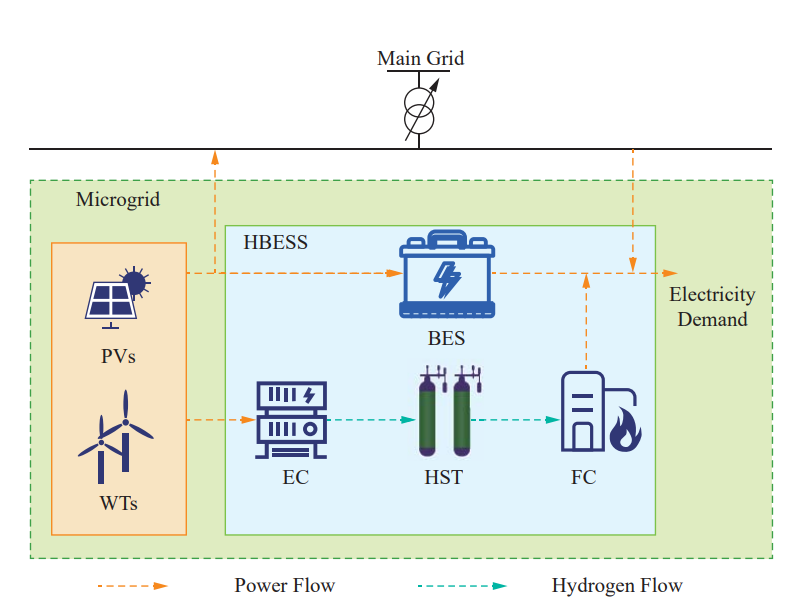
In a significant advancement for renewable energy management, researchers have developed a new adaptive robust optimization approach for hybrid hydrogen-battery energy storage systems (HBESS) operating within microgrids. The study, led by Professor Xu Zhao from The Hong Kong Polytechnic University, aims to minimize operating costs while effectively managing the state-of-charge (SoC) of battery storage systems.
The research, published in the journal Global Energy Interconnection, introduces a two-stage model that addresses the challenges of integrating hydrogen and battery storage in microgrids. The day-ahead stage employs robust optimization to establish hydrogen dispatch and battery storage SoC boundaries, while the intraday stage focuses on dispatching battery storage within these defined SoC intervals, considering uncertainty realization from a comprehensive daily perspective.
This innovative approach is designed to hedge against uncertainties in renewable energy generation and demand, a critical issue in microgrid management. The adaptive robust optimization method integrates the HBESS operation model with integer recourse variables, solved using a novel outer-inner-CCG algorithm. Simulation results have demonstrated the exceptional performance, efficiency, and resilience of this adaptive robust operation model.
The implications of this research are far-reaching for the renewable energy sector. As the world increasingly shifts towards sustainable energy solutions, the efficient management of energy storage systems becomes paramount. This model could significantly reduce operating costs for microgrids, making renewable energy more economically viable and encouraging wider adoption.
Furthermore, the study’s focus on hybrid systems combining hydrogen and battery storage showcases the potential for diverse energy storage solutions to work in tandem. This approach could lead to more flexible and resilient energy systems, capable of adapting to varying energy production and demand patterns.
The research team’s work is particularly timely given the global push for decarbonization and the increasing integration of renewable energy sources into existing power grids. By optimizing the operation of HBESS within microgrids, this model could play a crucial role in facilitating the transition to a more sustainable energy future.
This study was supported by grants from the National Natural Science Foundation of China and a PolyU research project, highlighting the collaborative nature of cutting-edge energy research. The findings have been published in the journal Global Energy Interconnection, which focuses on large-scale low carbon energy technologies, global energy interconnection, and climate change impacts.
As the energy sector continues to evolve, research like this paves the way for more efficient, cost-effective, and environmentally friendly power systems. The adaptive robust optimization model for HBESS in microgrids represents a significant step forward in addressing the complexities of renewable energy integration and storage management.
For more information on this groundbreaking research, interested parties can access the full study at https://doi.org/10.1016/j.gloei.2024.10.006. This development marks another milestone in the ongoing journey towards a sustainable and interconnected global energy system.

This news story relied on a press release distributed by 24-7 Press Release. Blockchain Registration, Verification & Enhancement provided by NewsRamp™. The source URL for this press release is Researchers Develop Adaptive Robust Optimization Model for Hybrid Hydrogen-Battery Energy Storage Systems in Microgrids.